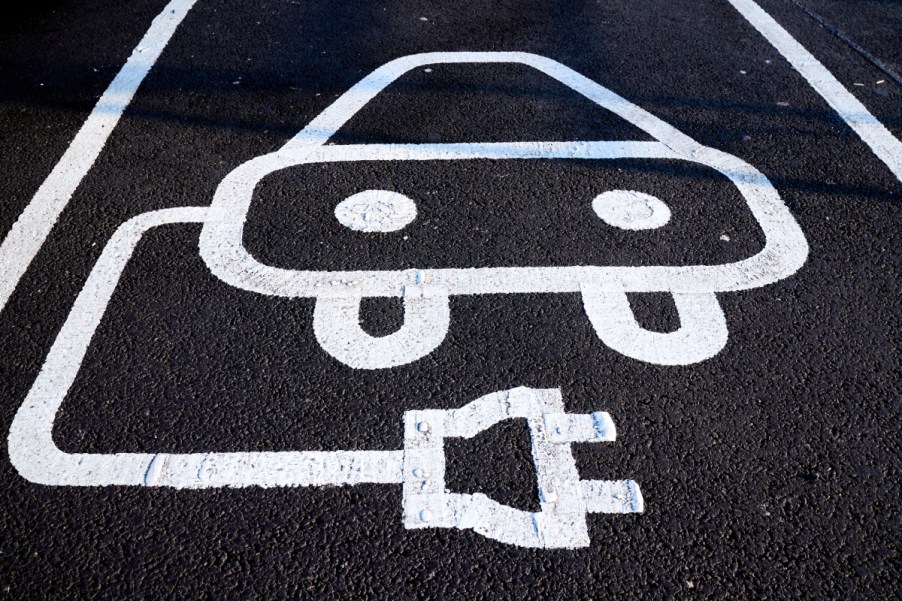
Volta Electric Vehicle Charging Ad Pokes Fun at High Gas Prices
While gasoline prices continue to rise, have you considered switching to an electric vehicle yet? One major electric vehicle charging brand decided to use humor in the face of this situation. Volta Charging wants you to know that it is cheaper to add range to your EV than it is to add gasoline, but is that true?
Volta is an electric vehicle charging brand in the US

If you haven’t heard of Volta Charging yet, maybe it isn’t in your area. However, there are a variety of free electric vehicle chargers at convenient locations from the Volta brand. One of the brand’s main selling points is that charging shouldn’t be a significant disruption to your life.
“Refueling is no longer a disruption.We’re building the future of EV charging with stations at the places you already visit.”
Volta Charging
EV drivers can find these chargers at shopping malls in your town, Target locations, movie theatres, and everything in between. The brand says it has saved drivers almost four million gallons of gas. So, how much does it cost to use an electric vehicle charging station compared to filling up at a gas station?
The electric vehicle charging brand takes aim at gas prices
“When they go high, we stay low,” the electric vehicle charging ad says. It shows a gas price of $4.33 per gallon, which was the average whenever Volta made this ad. In contrast, Volta shares the equivalent electric cost of $0.97. Electricity varies by location, but it is cheaper than gas in many places. This has been a major selling point for electric vehicle brands recently.
According to a recent CNBC article, electricity prices have gone up recently in areas with heavier EV use. CNBC looked at two major cities with heavy electric vehicle use: Boston and San Francisco. For comparison’s sake, the U.S. National average is also included. All gas and electricity prices come from the U.S. Bureau of Labor Statistics and the U.S. Energy Information Administration for each respective commodity. On Feb. 1, 2019, the cost of gas was $4.72 to add 100 miles to the tank for an EV. Feb. 1, 2022, saw the price of electricity go up to $5.14 for 100 miles of range. If you were looking to add 100 miles with gasoline on Feb. 1, 2019, the cost was $9.33. That has fluctuated over time, but the price sits at $14.08 as of Feb. 1, 2022.
Comparatively, Boston sat at $8.09 for electricity on Feb. 1, 2019, and $9.33 on Feb. 1, 2022. For gas, the price starts at $9.66 on Feb. 1, 2019, and sits at $14.04 for Feb. 1, 2022. In San Francisco, the numbers are a bit higher. Electricity went from $7.15 to $9.68 in the same timeframe. The price of gas went from $13.06 to $19.78. Therefore, those participating in electric vehicle charging are paying less than those at the gas pump.
The price of electricity is still lower than the cost of gasoline
Opinions aside, the gas prices reported by the U.S. Energy Information Administration are much higher than the electricity prices. The U.S. Bureau of Labor Statistics on electricity has changed slightly over the last two years, but the difference is minimal. So even with the cost of electricity increasing, it is still cheaper to add miles in an EV than to add miles at the gas pump.
While gas prices might come down in the next few months, the price of electricity probably won’t change that much to make it less affordable. Those visiting a Volta electric vehicle charging station can probably verify this as prices level out.
Additionally, some manufacturers are including free electric vehicle charging in some way or another with the purchase of a new EV. If gas prices are keeping you up at night, perhaps Volta Charging has a point.



